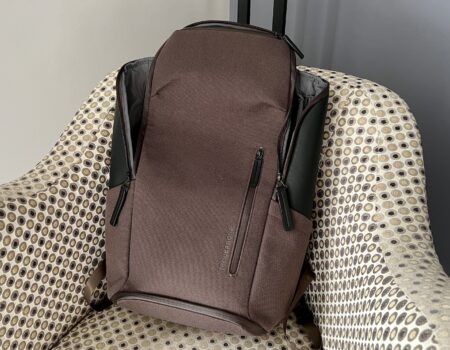Two Years of Working From Home: What I’ve Learned
23rd January, 2022 - Blog
Hey folks, how goes it?
Before I start this week’s blog post, just a reminder that I (along with two wonderful co-hosts) have a podcast now. Find out more about it here.
I was scrolling through Facebook memories today (something I often do when I’m feeling wistful), and I was reminded it’s been two years since I left Reach and moved to (at the time) full-time freelance work.
I remember heading home on the Friday, pitching articles to everyone imaginable, before getting the job at Gfinity on the Monday (as a freelancer). That allowed me to buy the MacBook I’m typing on right now, and get to work building my freelance work from a passion project into my main job, something I’ll always be grateful for. I went into the Gfinity once just a couple of weeks after joining.
Then, just weeks later, the world came to a standstill. COVID arrived, and so too did lockdowns. That led to an increase in working from home, and if you’re one of the lucky ones, you may still be working from home now.
I’ve always been a believer in working from home, and in the job where I’d spent most of my twenties, they were believers in it for a significant chunk, too. When I moved to Reach, I was handed a company laptop (which barely worked on a good day), but working from home was never fully embraced. Even on days where a doctors appointment meant I couldn’t commute in until later (that’s two hours each way), it was insisted upon that I go into the office – despite the fact I’d be more productive if I’d worked from home.
That’s not to say there aren’t challenges, though, and this blog won’t get into who should be paying your broadband bill between you or your employer. But still, there are some things I’ve learned from working at home for two years. These may not work for you, but for me, they’ve meant that I can give 110% to my employer, while never feeling overwhelmed.
1) Find a space to work

I’ve seen this from both sides of the coin. In our flat, I took up a quarter of our bedroom because it was the only place that made sense when on lockdown with a baby. I couldn’t work in the lounge, because it made me feel like Jackson and Frankie couldn’t have that space, and it also made me feel pretty sh*tty being unable to play with my son.
Moving to our house, I now have a repurposed garage and it works a treat. Not only does it mean my work is undisturbed by a certain little monster, but it creates a psychological break between work and home, too.

Frankie (and Jackson) knows that when I’m in the house, I’m either taking a quick break or I’m home for the night, but when I’m in the office, it’s all business. It also has the bonus of stopping me logging on to do a quick spot of work, just because my computer is in the bedroom.
I appreciate this won’t be possible for everyone, or at least not to this extent, but if you’ve got a room, a corner of a room, or anything, it can make a huge difference. When we were at the flat, I actually ended up walking to my parents’ house about 10–15 minutes away so I could work there, then walk home. It makes a huge difference.
2) Invest in the tools you need

I’m a very task-focused person, so I always rely on my task manager (which is Things 3). If something needs to be done, it goes on the list, whether that’s grabbing stuff from the shop, prepping invoices for freelance clients, or recurring day-to-day tasks for Dexerto.com.
I know that if it’s on there, I’ll see it, because Things 3 is the first application (other than Slack) that I open when I start work in the morning. I bought the app with my own money, but the £20 it cost me I’ve more than made back.
In my line of work, much of my day revolves around writing and editing words. There aren’t a huge number of things I need, but I’d recommend researching apps or tech that can make your life better. Maybe you’ll get lucky and you can expense it, but at this point in time I’d go mad without a decent size external monitor and the likes of Things 3, Drafts, and Fantastical.
Those three apps, combined with the occasional use of Photoshop, have made my working life so much easier. I’ve got some freelance projects that touch on similar aspects coming soon, as well as another blog post, but for now it’s worth considering what you use: even a free product like Google Sheets could make planning and tracking things easier, for example.
One weird one I enjoy is Dark Noise. I sometimes use it to pump out office noise so things don’t feel so lonely!
3) Get outside once a day
This might be the biggest recommendation for me on this list. When we lived in the flat, my outlet was a run along the seafront, or even just walking with Jax in his pram.

Nowadays, I hit the gym or go for a run every weekday. Even on days where I’m tired, I’ll walk just to stretch my legs and grab some fresh air. It makes a huge difference.
It’s all too easy, especially if (like me) you enjoy your work, to avoid lunch breaks because you want to get stuff done, or simply because you lose track of time. You need to take a break, so try and spend some of it outside if you can. You’ll be glad you did.
4) Communicate with your team

Whether your workplace communicates via Teams, Slack, or even WhatsApp, it’s important to know when to set boundaries and expectations.
When I moved to Dexerto, I took on a much larger team than I was used to. I love that, because we have great conversations, and everyone is working to do the best that they possibly can, but in a world where we can’t see our co-workers, it can be easy to feel like you aren’t replying quickly enough.
I’m forever updating my Slack status, whether I’m on lunch, or buried in stats, or working on a larger project. This helps set my team’s expectations – I’m always available, but messages may not be responded to in a short period.
That’s important to pass on, too, because it works both ways.
5) Know when to log off

Oh boy, I was guilty of this one. It depends on your job, sure, but in the Gfinity days I felt like I was glued to Slack for the workday, but also the evenings and the weekends. It became a problem in my family life, too, and again it’s key to set those boundaries.
Did I really want my son’s first few years to be constantly punctuated by me having to take Slack calls or respond to emails? God no, and as a result I do my best to avoid contact out of work hours (emergencies aside).
Be smart about it – you’re paid for your time, sure, but outside of that there need to be processes and structures in place to let you breathe. Think of work like exercise; you wouldn’t finish an intense workout at the gym, then just keep going and going. There’s always a balance to be struck, even if that takes some time to set those parameters.
Anyone, there’s a few handy things I’ve learned from working at home for two years. If you have any good ones, do let me know on Twitter!
For now, though, stay safe.
L
![]()


